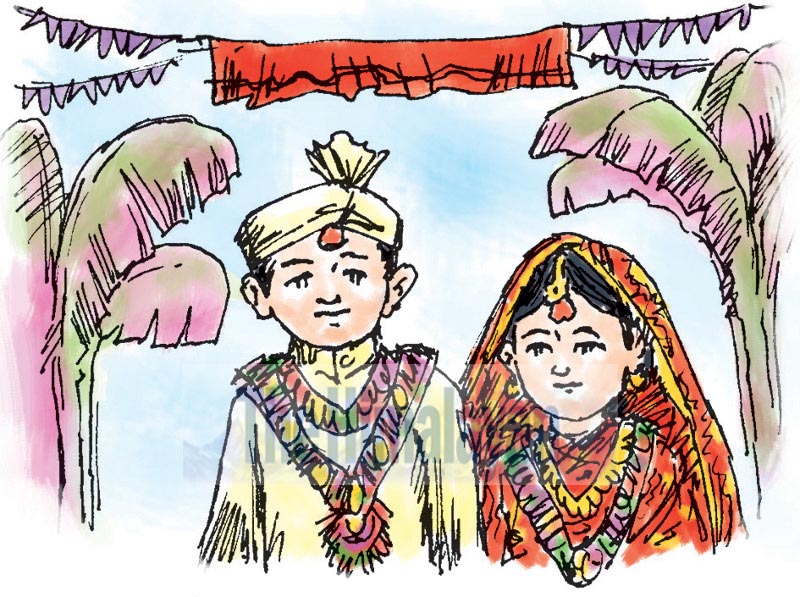Child marriages continue unabated
Kathmandu, January 3
Child marriages are rampant in the country undermining the rights of children. Studies by national and international non-governmental organisations and government reports indicate that social evil shows no sign of abating, despite stringent legal provisions.
According to the Status of Children in Nepal-2019, released by the Ministry of Women, Children and Senior Citizens, as many as 137 cases of child marriage were reported in 2018-19 compared to 136 in the previous fiscal.
A total of 196 children (59 boys and 137 girl) were victims of child marriage in 2018-19 against 168 (32 boys and 136 girls) in previous fiscal. In 2018-19, both the brides and bridegrooms of 59 cases of child marriage involved children. In a few cases, minor girls were married off to elderly men above the age of 60.
Of 196 children, who were married, 75 were subjected to pressure from their parents, while 121 others allegedly tied the knot on their own accord, according to the government report. The report also said Nepal Police and local child clubs foiled 24 cases of child marriage in 2018-19. As per the existing law, child marriage is referred to as a marriage entered into by a male or a female before attaining the age of 20 years.
Before the age of 18, girls are neither physically nor emotionally ready to become wives or mothers. The report said child marriage not only deprived girls of education, but it often made them vulnerable to a cycle of discrimination, domestic violence and abuse. It has advised children to make their parents aware that an individual must attain at least 20 years of age to get married. Section 173 of the Criminal Code Act states that anyone found guilty of committing or assisting child marriage shall be liable to a jail term not exceeding three years and a fine of up to Rs 30,000.
The MoWCSC said it had issued a procedure for carrying out programmes at local levels to eliminate social anomalies and malpractices like child marriage. The procedure aims to incorporate anti-child marriage programmes into periodic and annual plans and programmes of the local levels and implement the same in an effective manner; ensure the participation of male children, teenagers and men in the fight against child marriage; and mobilise children, teenagers, parents, guardians, teachers, political and religious leaders and other stakeholders.
The programmes to be conducted by the local levels include raising awareness on child rights, sexuality, sexual and reproductive health and rights, through anti-child marriage campaign; training for child clubs and communities; development of child-friendly infrastructure; formation and mobilisation of child and youth clubs exclusively against such social malpractice; conducting awareness programmes at family level in association with government and non-government organisations; and ending child marriage and gender discrimination.






